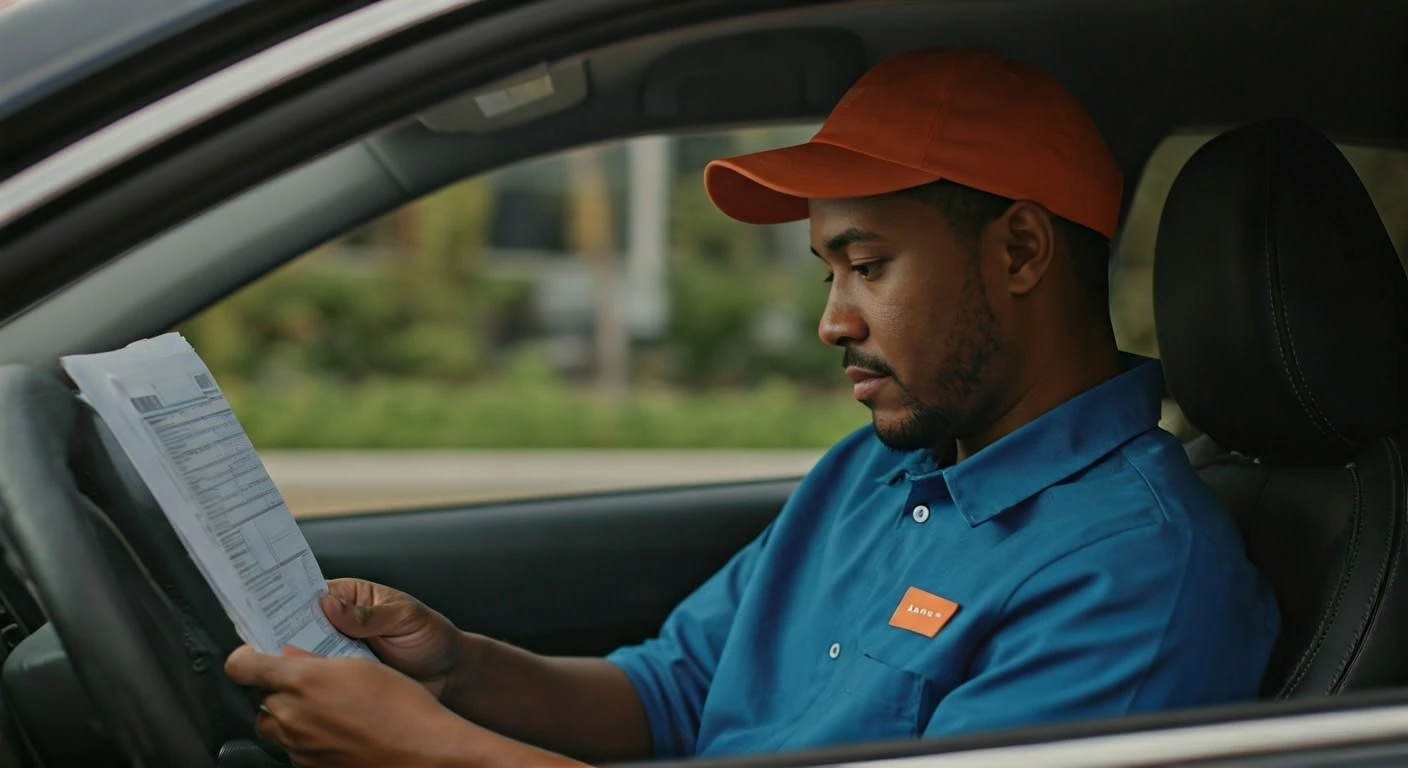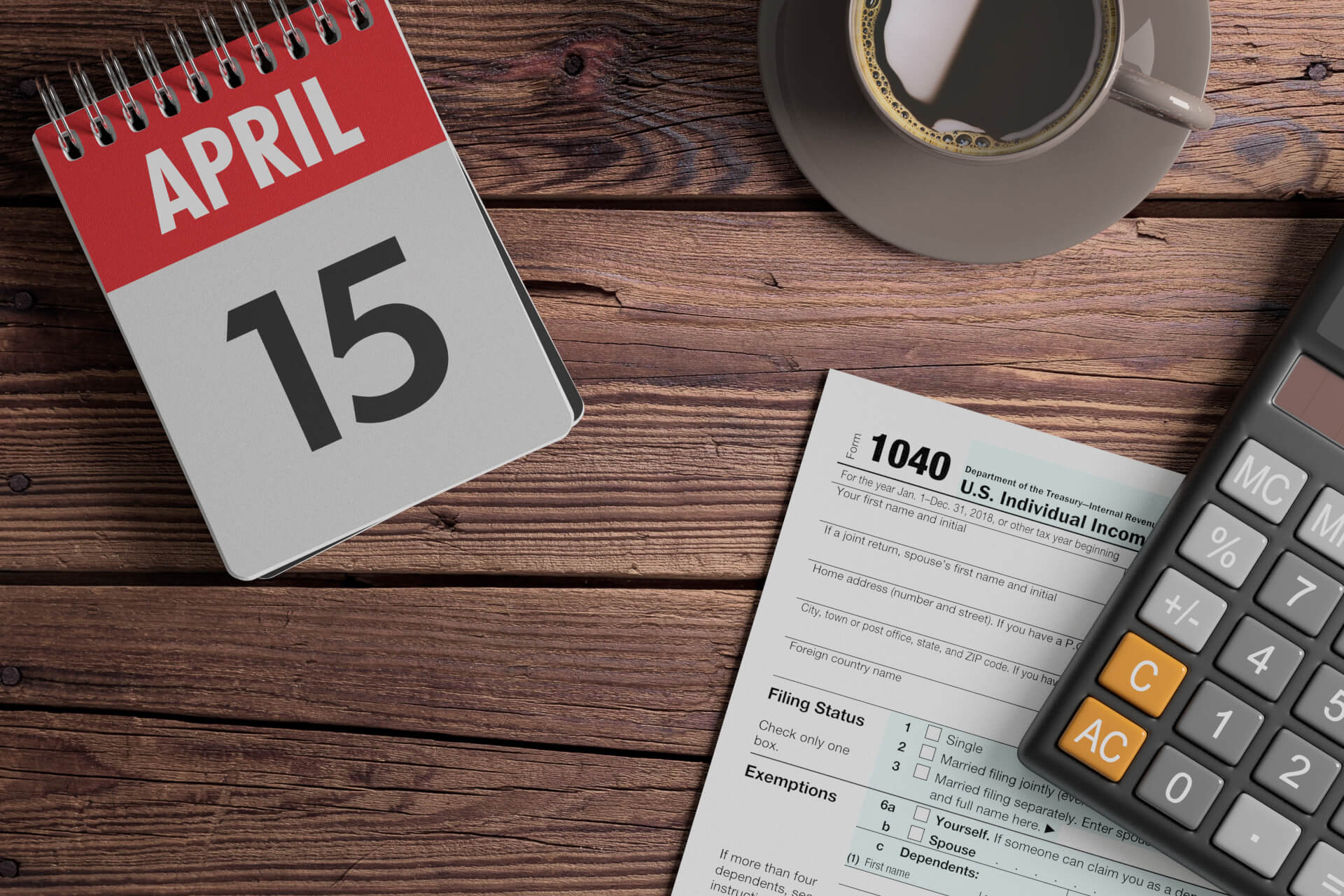By NexGen Support Team
December 6, 2024

Watch our video to understand how DoorDash taxes work, how to navigate your 1099, and maximize your deductions!
Working as a Doordash driver, understanding how taxes work is crucial to managing your earnings effectively. One common question among Dashers is, “Does Doordash take out taxes?” The answer is no —Doordash does not withhold taxes from your earnings. As a result, drivers are responsible for handling their tax obligations.
This guide will explore everything from the IRS tax percentage to how deductions can impact your tax rate. Whether you’re asking, “Do I receive a 1099 from Doordash?” or “How do I pay taxes working for Doordash?” or wondering what happens if you don’t pay your Doordash taxes, we’ve got you covered. Stay informed on how to navigate your finances as a Dasher and maximize deductions to optimize your earnings.
Talking to a tax professional can help you file and get the best deductions.

Doordash Drivers, Beware! Learn why DoorDash doesn’t withhold taxes and how to manage your self-employment tax responsibilities. Stay prepared with our guide!
As a Doordash driver you have the flexibility to choose your own hours and earn good money. However, one important thing to consider is does Doordash take out taxes for drivers? The answer is no — Doordash does not withhold taxes from when they pay you. In a regular job, they come out of your pay. As an independent contractor, you are responsible for your taxes. This means you have to set aside money for both federal and state income taxes, as well as self-employment taxes, which include Social Security and Medicare contributions. Learn about Doordash tax percentage, estimated tax payments and more in this guide.
As a Doordash driver, it’s important to understand how taxes work, as you’re considered an independent contractor rather than an employee. As a result, Doordash doesn’t automatically withhold taxes from your earnings, and you’re responsible for reporting your income and paying your taxes to the IRS.
Understanding your 1099 and keeping track of your eligible deductions can help ensure that you’re filing correctly and maximizing your tax savings.
If you earn over $600 with Doordash in a year, you will receive a 1099-NEC form from Doordash, which you can also access through your Stripe Express account. This form lists your total earnings from Doordash. It includes your base pay, tips, and bonuses.
It is important to look at your 1099 form closely. Be sure to check that all information regarding your earnings and personal details is accurate. If you see any errors, reach out to Doordash immediately.
The 1099-NEC is a form that has details for you and the IRS. Remember, it is not the same as your tax return. You will need the details from this form and other financial papers to pay your estimated taxes and complete your federal and state tax returns.
If you haven’t received your 1099 form, start by checking your email, including spam folders, and your physical mailbox, as the form might have been sent electronically or by mail. If it’s still missing, contact the issuer directly to request a replacement or inquire about delays. Additionally, log into any work-related online platforms, as many offer downloadable tax forms. If these steps don’t help, visit the IRS website for guidance on reporting your income without a 1099. For further assistance, consult a tax professional to ensure you’re prepared for tax season without any last-minute issues.
Additionally, if you have over 200 transactions and earn $20,000 or more, DoorDash will issue a 1099-K form. This form will show the total amount you earned through the DoorDash platform.
To learn more about the 1099, check out our exclusive blog.
As an independent contractor, you’re eligible for deductions related to your vehicle, fuel, and other business expenses, which can lower your taxes as a Doordash driver.
One important deduction for delivery drivers is the standard mileage deduction. The IRS sets a standard mileage rate every year. This rate helps self-employed people save on vehicle costs by using the miles they drive for business. You can use the standard mileage rate or record your actual expenses. You can take off a specific amount for each mile you drive for business use. It is important to keep careful mileage logs to support this deduction.
Here are some possible Doordash tax deductions or credits:
Category | Applicability | Benefit / Qualified Expenses |
Vehicle Expenses | If you don’t choose the standard mileage deduction. | Up to 100% of actual vehicle costs, including gas, maintenance, insurance, and depreciation. |
Business Supplies | If you have expenses related to your Doordash business. | Up to 100% of necessary supplies like insulated bags, phone mounts, chargers, and other work-related materials. |
Self-Employment Tax Deduction | For those with net self-employment earnings of $400 or more annually. | Up to 50% of self-employment taxes paid. |
Home Office Deduction | If you use part of your home exclusively for your Doordash business. | Deduct a portion of home expenses like rent, mortgage interest, utilities, and insurance. |
Start-Up Costs | For new businesses. | Up to $5,000 of start-up expenses, if you meet eligibility criteria. |
Qualified Business Income Deduction | For pass-through businesses (e.g., sole proprietorships, partnerships). | Up to 20% of your qualified business income if it falls below certain income thresholds. |
Health Insurance Deduction | If you’re not eligible for employer-sponsored insurance. | Up to 100% of the premiums paid for health coverage for yourself and your family. |
Earned Income Tax Credit (EITC) | If you meet income limits and other eligibility requirements. | Up to $6,935 for qualifying taxpayers with three or more children. |
Education Tax Credits | For education expenses like tuition and fees. | Up to $2,500 for individual taxpayers, or $5,000 for married couples. |
Child Tax Credit | For children under 17. | Up to $2,000 per eligible child. |
Retirement Plan Contributions | If you contribute to an IRA, SEP IRA, or other qualifying retirement plan. | Contributions up to the plan’s annual limit, depending on eligibility. |
Research and Development (R&D) Credit | For businesses engaged in qualifying research activities in the U.S. | Up to 20% of qualifying R&D expenses. |
Clean Vehicle Credit | If you purchased a qualified electric vehicle. | Up to $7,500 for qualifying electric vehicles. |
Home Energy Credits | For energy-efficient home improvements. | Expenses for improvements like solar panels, energy-efficient windows, or heat pumps. |
Keeping accurate records of your income and expenses is crucial for filing your returns correctly.
Filing taxes as a DoorDash driver may feel overwhelming, but with a structured approach, it becomes manageable. Follow these steps to ensure accuracy and maximize your deductions:
Accurate record-keeping is essential for successful tax filing and claiming deductions.
Determine your taxable income by:

File your taxes confidently using IRS Form 1040:
Pro Tip: Stay ahead by marking April 15th, the typical tax deadline, on your calendar to avoid penalties for late filing.
As an independent contractor, you’re responsible for paying taxes throughout the year since DoorDash doesn’t withhold taxes. To avoid a large tax bill or penalties, make quarterly estimated tax payments, especially if your tax balance may exceed $1,000.
Planning ahead ensures financial stability and minimizes tax season stress.
If you don’t pay taxes on your Doordash income, you may face penalties and fines from the IRS. It’s essential to report all your earnings accurately to avoid legal consequences. Utilizing tax credits and deductions can lower your tax liability and maximize your potential refunds. Make sure to keep detailed records of your expenses and income to streamline the filing process and ensure compliance with laws.
An experienced accountant can help you avoid such penalties and handle complex tax issues. Moreover, they can also make sure you get all the deductions available to you. In addition, they can provide good advice to reduce your tax liability in the future.
At NexGen Taxes, we know you’d rather spend your time running your business than worrying about bookkeeping and taxes. That’s why we’ve created a seamless way to connect you with trusted CPAs and EAs who take care of everything for you. From accurate record-keeping to filing taxes on time, we’re here to simplify your financial life.
As an independent contractor, you should focus on getting the most deductions. This will help you keep more money from what you earn. Be sure to keep track of your business mileage.
Keep track of all your business expenses, even the small ones. Every dollar you write off helps to lower your taxable income. This can lead to a smaller bill for you.
Knowing the common tax deductions for Doordash drivers is key to saving money. A significant deduction is the mileage deduction, one of the specific deductions frequently utilized. You can subtract a certain amount for every mile you drive solely for work. This covers the miles you drive to pick up orders, deliver food, and get to and from busy places.
If you drive your car for both personal and business reasons, it’s important to keep track of your business miles. You can either take the standard mileage rate or claim your actual expenses. The best option will depend on your specific situation.
Here are some other deductions to think about:
Keeping track of your mileage and business expenses helps you get the most out of your deductions. Moreover, it makes filing your taxes simpler. Fortunately, there are many tools and methods available to assist you with this.
One common method is to use an app that tracks mileage. Many such apps are designed specifically for gig workers. They can automatically track your miles and allow you to categorize trips as business or personal.
In addition to tracking your mileage, it is equally important to maintain organized records of your business expenses. This includes keeping receipts, invoices, and credit card statements. Furthermore, you can use accounting software or simple spreadsheet templates to help you organize everything.
Your questions “Does Doordash take taxes out?” or “Do Door dashers have to pay taxes?” or “What percentage does Doordash take out for drivers?” have likely been addressed by now. It is very important for Doordash drivers to understand how to file taxes properly to maximize deductions and stay compliant with the law. You should familiarize yourself with reading your 1099 form and identifying every possible deduction. Keep track of your expenses, and consider using tax software or consulting an expert for assistance. By preparing ahead of time and learning about tax terms and deductions, you can easily manage tax season.
Unsure how to maintain your records or how your taxes are impacted? You’re in the right place!
NexGen connects you with reliable CPAs and EAs who expertly manage your finances and taxes. With their support, you can stop worrying about spreadsheets and start focusing on achieving your goals. Connect with us now for expert advice!
Doordash usually sends out 1099 forms by January 31st of the next year. You will receive an email from Stripe Express, their payment processor. This email will have instructions on how to get your tax information. You can also log into your Stripe Express account to get and download your 1099 form for the correct tax year.
To ensure a smooth process and avoid any delays with your 1099-NEC, it’s crucial to verify your tax information:
By following these steps, you can ensure your tax documents are accurate and avoid any unnecessary complications come tax season.
No. Doordash does not automatically deduct taxes from your money. As an independent contractor, you must report your Doordash income using a 1099 form and pay your taxes. You may also need to pay quarterly estimated taxes if you have earned a certain amount.
Yes, as a Doordash driver, you are considered self-employed and responsible for reporting and paying taxes on your earnings. This includes income as well as self-employment tax. It’s important to keep track of your earnings, expenses, and any relevant deductions throughout the year to ensure you are prepared to file your taxes accurately and on time.
They can save money by deducting their business mileage and vehicle costs. They have two options: the standard mileage deduction or the actual expense method. Additionally, they can deduct expenses like tolls, parking fees, and a portion of their phone and internet bills.
You must pay taxes on your earnings because you’re classified as self-employed. Keep track of income, expenses, and deductions annually. In the US, taxes are usually due by April 15th. Deadlines may vary, so seek advice if you need clarification on obligations. You might need to pay estimated quarterly taxes to avoid any penalties.
For Doordash, as an independent contractor, you must report your earnings and file taxes annually by the tax deadline, typically April 15th in the United States. You will generally file your return with Form 1040 and Schedule C.
Your Doordash earnings appear on Schedule C of your Form 1040. You will total your business income and expenses there. This helps you find out your taxable income.
The income tax percentage for Doordash drivers varies. It depends on what they earn and where they live. They must also pay a self-employment tax of 15.3% for Social Security and Medicare taxes.
If you don’t report your Doordash income, you may face consequences such as penalties, fines, or legal actions from tax authorities. It is important to accurately report all sources of income, including earnings from such platforms, to comply with tax laws and regulations.
Yes, if there’s an error on your 1099 from DoorDash, you can get it corrected. Just reach out to DoorDash support, explain the issue, and they’ll help fix it.
© 2022-2026 NexGen Unlimited, LLC